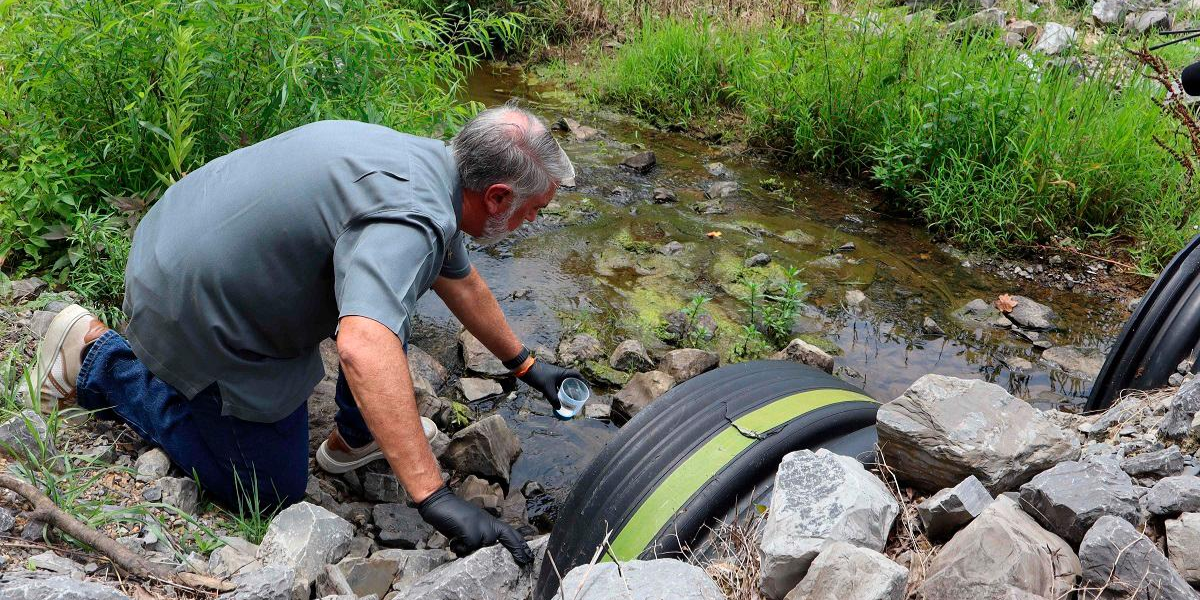They hoped that their small farm in the middle of nowhere Georgia would help them get out of their hard working-class life and give their children and grandchildren a better future. It could actually be making them sick.
There were tens of thousands of times more dangerous “forever chemicals” in their spring water than the government thinks is safe. What was the source? Most likely carpet stores nearby.
“It scares us,” said dispatcher Sasha, 38. Their five kids, a niece who is two years old, and a grandson who is due in October live with her husband, who drives long distances across the country. “It’s scary,” she added.
Over 10,000 man-made chemicals called per- and polyfluoroalkyl substances (PFAS) are made to fight heat, water, oil, and stains. Since the 1940s, these chemicals have been used to make nonstick pans, firefighting foam, and rugs that don’t stain. PFAS are unfortunately linked to problems with hormones, weaker immune systems, and some types of cancer.
Even scarier is the fact that these chemicals last a long time. These chemicals don’t break down in nature for thousands of years because the links between carbon and fluorine are so strong. Also, they build up in living things and have been found in the blood of almost all people and animals on Earth.
In the United States, Dalton, Georgia, which is known as the “Carpet Capital of the World,” has become one of the most PFAS-contaminated places. This is because of the mills that Mohawk Industries and Shaw Industries run. Residents of the area say that these companies dump PFAS into sewers, release them into the air, and use chemical-filled sludge as fertilizer on fields.
The carpet companies are now being sued by Sasha, her family, and other landlords. It could cost up to $1 million per acre to clean up their land and pay them for the damage that was done.
Mohawk, Shaw, and the chemical giant 3M are some of the carpet companies that have failed to say anything about the lawsuit. Another chemical company, Chemours, says it is not responsible because it does not have any plants in Georgia. The local water company, Dalton Utilities, is also suing the carpet makers. For the same reason, Mohawk is fighting 3M.
The first national rules for six PFAS chemicals were made by the Biden government last year. But since Trump was president, rules have been loosened and due dates for following them have been pushed back.
At the moment, the Cordles are having serious health problems. Sasha got two autoimmune diseases, high blood pressure, and was always tired after they moved into their new home in 2020. “Sometimes getting out of bed makes me feel like I’m 80,” it was said. Her adult children also say they have health problems, and some of the baby goats on their farm died because they were born with birth flaws.
Ben Finley, an attorney, is dealing with a huge number of claims from people who were harmed. His firm has already filed cases for 18 plaintiffs, and he’s using town hall meetings to try to get more clients. “We’re drawing a direct line between contamination, lost property value, and the costs of cleaning up the land,” said he.
Bob Bowcock is collecting samples of water, dirt, and dust to help build the case. He is an expert on water. “Springs that flow into ponds and creeks have more than 180,000 parts per trillion of PFAS in them.” “It shouldn’t be more than four parts per trillion in drinking water,” Bowcock said, adding that pollution has been seen making some creeks foam. As PFAS seep into the ground, they get into eggs, milk, meat, and veggies that are sold all over the country.
Many people in the area used to depend on carpet companies for their income, but now many are against them. Prior to having surgery to remove her ovaries because of cancer, Mary Janet Clark, 62, worked for a carpet company. It turns out she has a brain tumor. David Wray, her son of 40 years, said, “We helped them become successful and make all that money.” And now this? Weird behavior.”
It’s even worse for some people emotionally. In the last few years, Teresa Ensley, 57, has lost her brother, father, and husband all to cancer. A higher chance of colon cancer has been linked to PFAS. Her brother and husband both died of colon cancer. Because of major thyroid problems, Teresa and her mother, who is 81 years old, both had to have hysterectomies.
The harm is clear to everyone, even those who haven’t turned sick. When Greg and Sharon Eads bought their house in 2019, they planned to retire there. However, tests showed that the land had dangerous amounts of PFAS, which ruined their plans. Their cattle, worth $50,000, can’t be used for meat or milk anymore. “It’s become a petting zoo,” Greg said. “I can’t do anything with them.”
Greg and Sharon recently showed AFP around their farm. They took us through peaceful pastures where their cows were gathering around a healthy newborn calf. It was a glimmer of hope in a world full of deaths, but they still don’t know what the future holds for them or their land.


 by
by 

